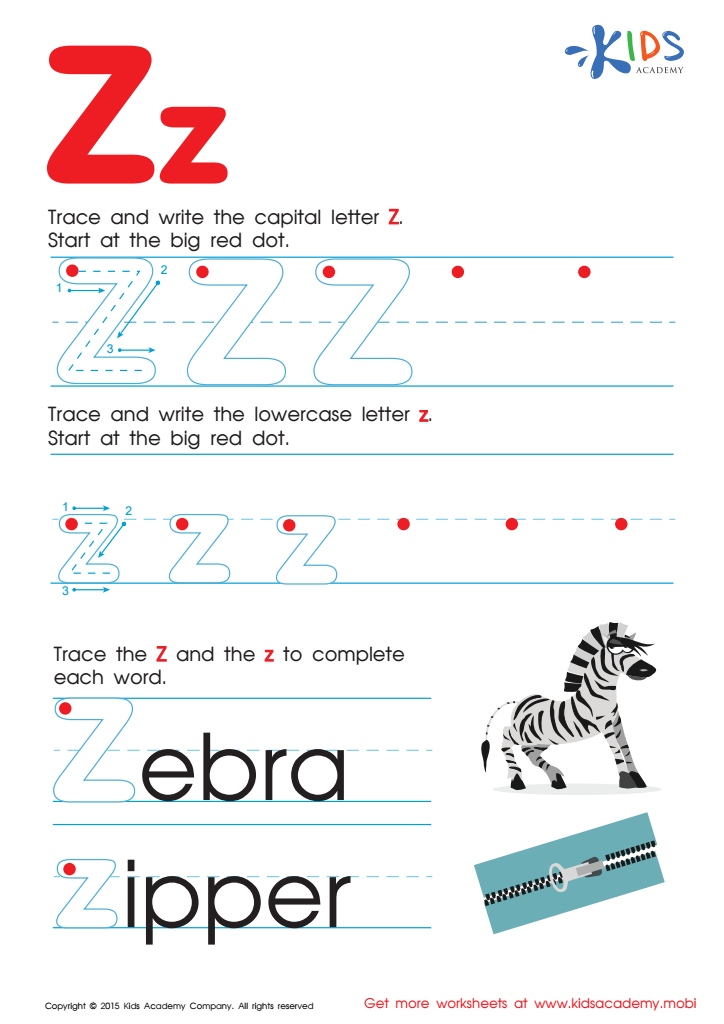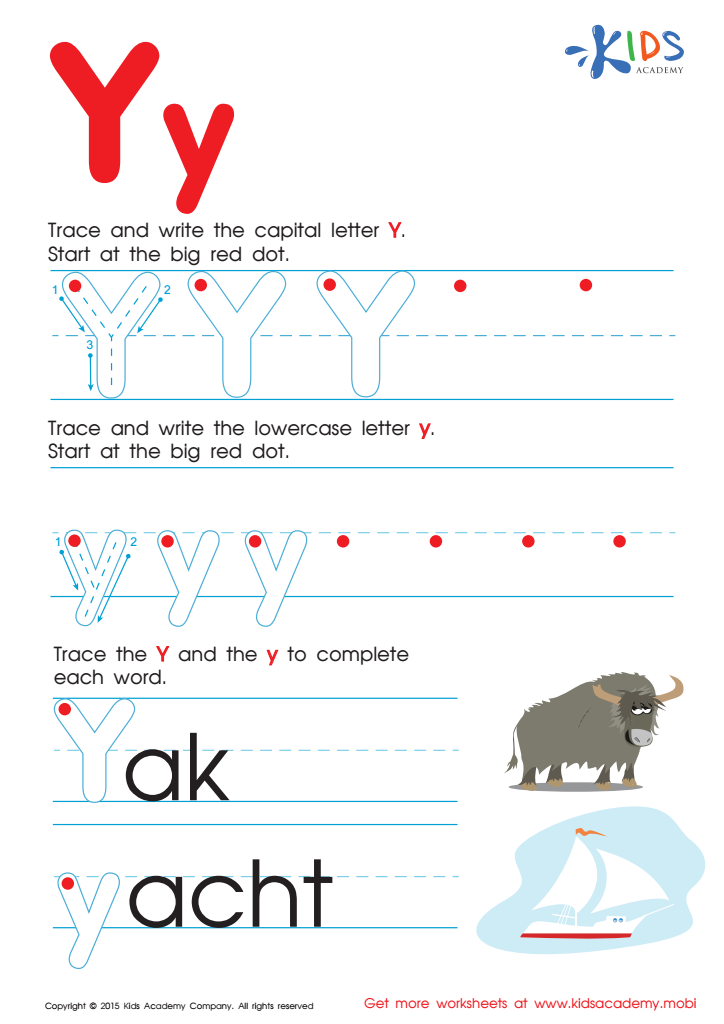Alphabet Recognition Extra Challenge ABC Order Worksheets for Ages 3-8
3 filtered results
-
From - To
Introducing "Alphabet Recognition Extra Challenge ABC Order Worksheets for Ages 3-8" – the ultimate tool to boost your child's alphabet skills! Tailored for young learners, these fun and engaging worksheets help kids master the ABCs while enhancing their reading and writing abilities. Each worksheet is designed to challenge children by arranging letters in alphabetical order, fostering both confidence and proficiency. Perfect for use at home or in the classroom, it's an excellent resource for parents and educators looking to support early literacy. Start your child's journey to alphabet mastery with these creative and educational worksheets today!


Letter A Tracing Page


Letter Z Tracing Page


Letter Y Tracing Page
Parents and teachers should prioritize Alphabet Recognition Extra Challenge ABC Order for ages 3-8 because it establishes a foundational skill set crucial for early literacy and future academic success. Mastering alphabet recognition in the correct sequential order enhances cognitive development by strengthening memory, visual discrimination, and pattern recognition. For young children, recognizing and sequencing letters correctly supports their ability to understand the structure of words, which is vital for reading fluency and spelling accuracy.
Furthermore, these challenges provide an engaging and interactive way to reinforce learning, catering to diverse learning styles and keeping young minds stimulated. By making alphabet learning fun, children are more likely to develop a positive attitude toward reading and learning in general. Early success in these tasks can boost a child's self-confidence and foster a lifelong love for reading and learning.
For parents and teachers, incorporating alphabet challenges into daily routines offers valuable insight into a child's learning progress, helping to identify and address any difficulties early on. This proactive approach enables tailored support that enhances a child's educational journey, paving the way for academic achievements and a strong literacy foundation.
 Assign to My Students
Assign to My Students














